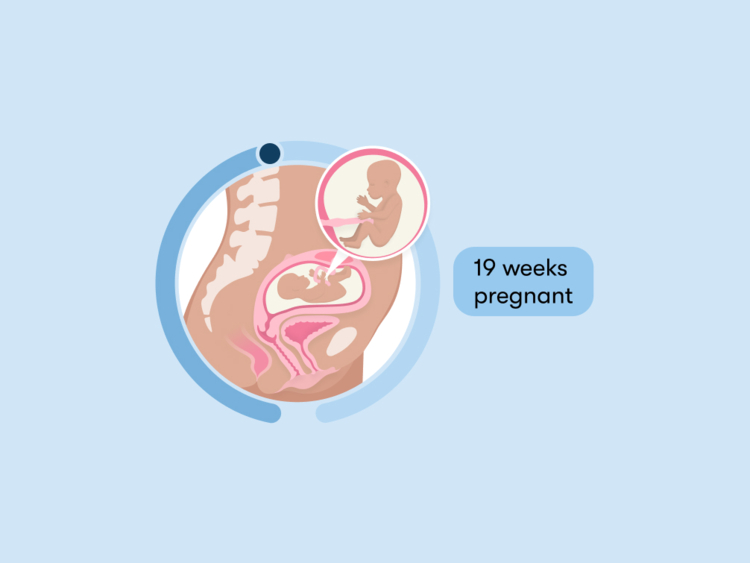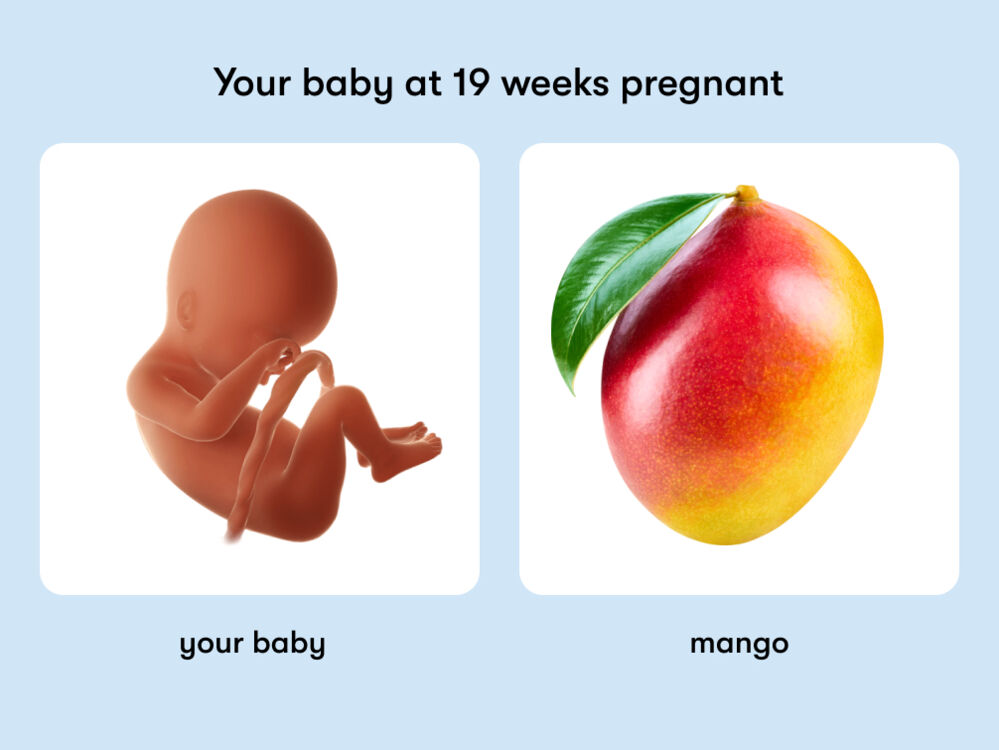At 19 weeks pregnant, you’re in your second trimester and fast approaching the potential halfway point (as pregnancy is considered to be full-term if your baby is born between 39 weeks and 40 weeks and 6 days.) While the timing of your first ultrasound scan can depend on the country you live in and your health care provider (some people have one as early as 8 weeks), you’ll have had your first by now. You may have started telling loved ones you’re expecting and might be starting to feel your bump. This can be a really exciting but nerve-racking time. There’s a lot going on, after all.
Big changes are happening in your body during your second trimester as your baby continues to develop. You may have already dealt with your pregnancy symptoms, but it’s crucial to remember that no 2 pregnancies are the same. What may have been typical for you will be so different for someone else.
So, to help you understand what’s happening with your baby and body at 19 weeks pregnant, a Flo expert gives you the lowdown.
Your baby at 19 weeks pregnant
Developing the vernix caseosa
At 19 weeks pregnant, your baby will be developing something called the vernix caseosa. If you’ve never heard of this, don’t worry; you’re not the only one. This is a white, sticky substance primarily made up of water and proteins, that covers your baby’s skin to give them protection in the amniotic fluid. Think of it as a special protective layer.
As well as acting as a barrier between your baby and the amniotic fluid, the vernix caseosa regulates their temperature and defends them against harmful microbes. It even aids in the delivery process by decreasing friction as your baby passes through the birth canal. Pretty amazing, right?
Developing adult teeth
While teething might feel like a world away, your baby starts to develop their teeth while they’re still in the uterus. Their teeth buds will have formed during the first trimester — this is the tissue around their gums that their baby teeth will push through. By 19 weeks pregnant, their adult teeth will start growing and will line up behind their first set of teeth.
How big is a baby at 19 weeks?
Length (crown to heel): 24 cm or 9.5 in.
Weight: 273 g or 9.6 oz.
Size: Equivalent to a mango
All measurements are approximate and vary within the normal range.



